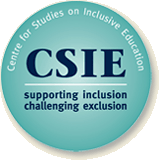
supporting inclusion, challenging exclusion
International Convention on the Protection of the Rights of All Migrant Workers and Members of Their Families
in a nutshell
The Convention (1990, in force 2003) covers the rights of migrant workers and their families. Article 7 asserts the right to enjoyment of the rights in the Convention without discrimination; articles 43 and 45 recognise the right to education, including vocational education and training.
Implementation of the Convention
Implementation of the Convention is monitored by the Committee on the Protection of the Rights of All Migrant Workers and Members of Their Families. Each state that has ratified the Convention periodically prepares reports on its implementation which are submitted to the Committee. Non-governmental organisations (NGOs) may submit ‘alternative’ reports to the Committee. The Committee considers the reports and examines government delegations from the states concerned, and prepares its concluding observations and recommendations for further action.
View the concluding observations of the UN Committee on Migrant Workers (extracts concerning inclusive education 2006-2009):
Right to education for children of migrant workers
Children of all migrant workers – defined as persons who are to be engaged, who are engaged, or who have been engaged in remunerated activity in a state of which they are not nationals (article 2) – have the right to education enshrined in article 30 of the Convention:
‘Each child of a migrant worker shall have the basic right of access to education on the basis of equality of treatment with nationals of the State concerned. Access to public pre-school educational institutions or schools shall not be refused or limited by reason of the irregular situation with respect to stay or employment of either parent or by reason of the irregularity of the child’s stay in the State of employment.’
Equality of treatment
For those who are ‘documented or in a regular situation’, article 43 states:
‘(1) Migrant workers shall enjoy equality of treatment with nationals of the State of employment in relation to:
- access to educational institutions and services subject to the admission requirements and other regulations of the institutions and services concerned;
- access to vocational training and retraining facilities and institutions....
- States Parties shall promote conditions to ensure effective equality of treatment to enable migrant workers to enjoy the right mentioned in paragraph 1 of the present article whenever the terms of their stay, as authorized by the State of employment, meet the appropriate requirements....’
Focus on children's education
Article 45 provides the same rights for migrant workers’ families, with special attention to children’s education:
‘(1) Members of the families of migrant workers shall, in the State of employment, enjoy equality of treatment with nationals of that State in relation to:
- access to educational institutions and services, subject to the admission requirements and other regulations of the institutions and services concerned;
- access to vocational guidance and training institutions an services, provided that requirements for participation are met....
(2) States of employment shall pursue a policy, where appropriate in collaboration with the States of origin, aimed at facilitating the integration of migrant workers in the local school system, particularly in respect of teaching them the local language.
(3) States of employment shall endeavour to facilitate for the children of migrant workers the teaching of their mother tongue ad culture and, in this regard, States of origin shall collaborate whenever appropriate.
(4) States of employment may provide special themes of education in the mother tongue of children of migrant workers, if necessary in collaboration with the State of origin.’
Page last updated: Tuesday 03 October 2023